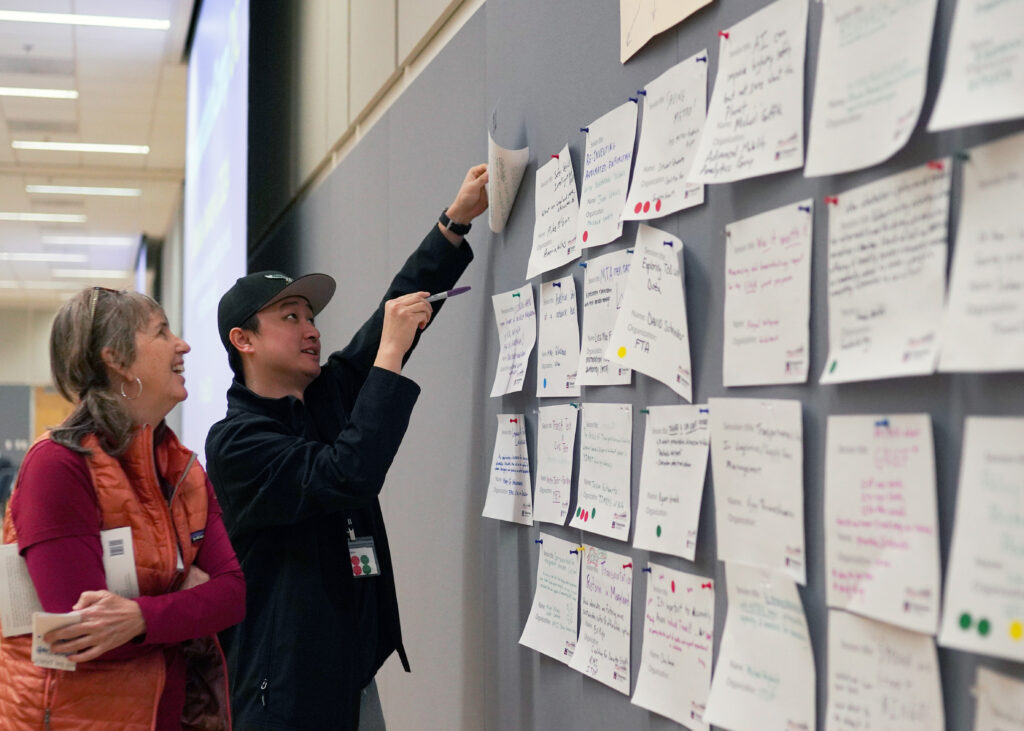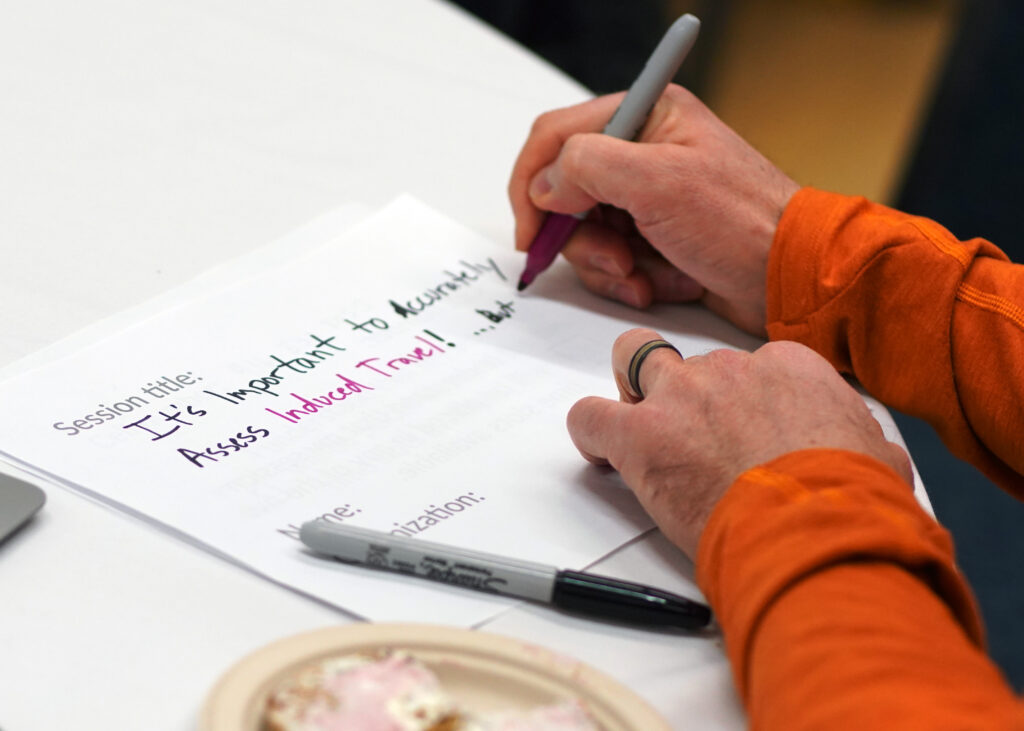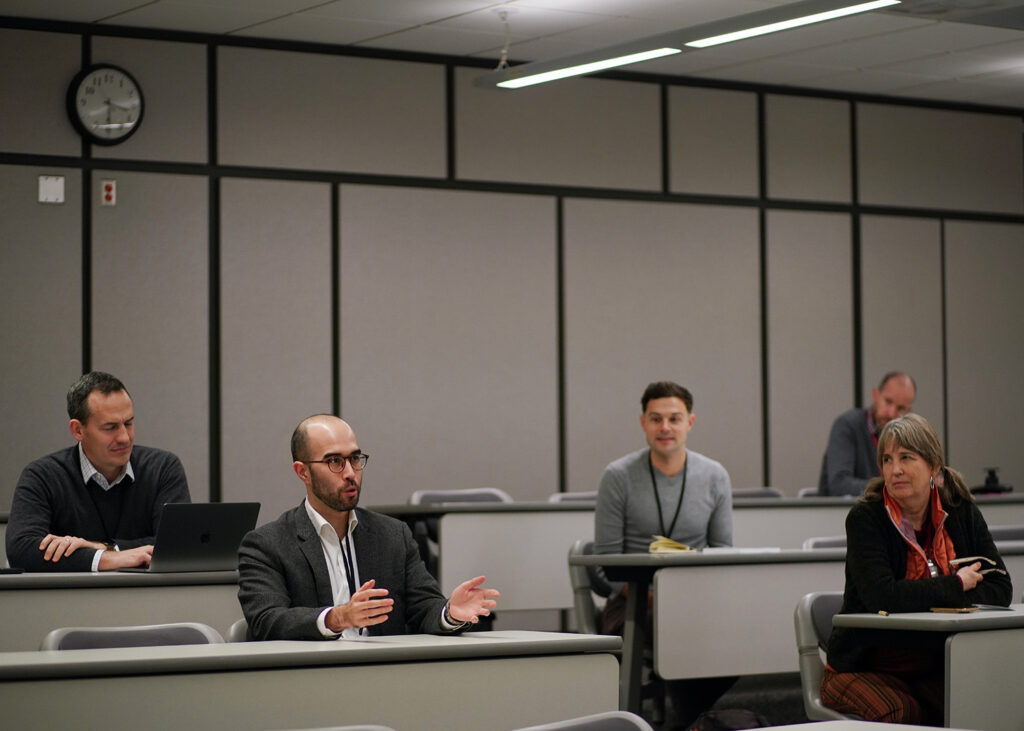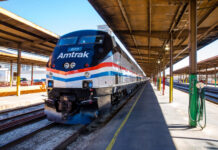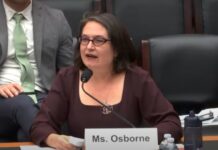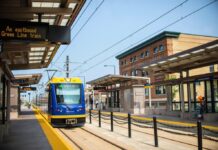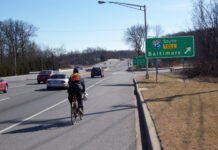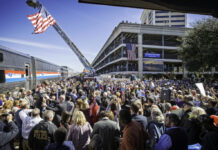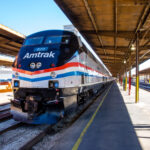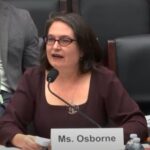TransportationCamp DC took place at George Mason University Arlington Campus on January 6. As one of 300 attendees in person – with an additional 100 joining virtually – I witnessed the beauty of what can happen when people come together to have conversations about transportation and policy reform and the future of transportation infrastructure across the nation.
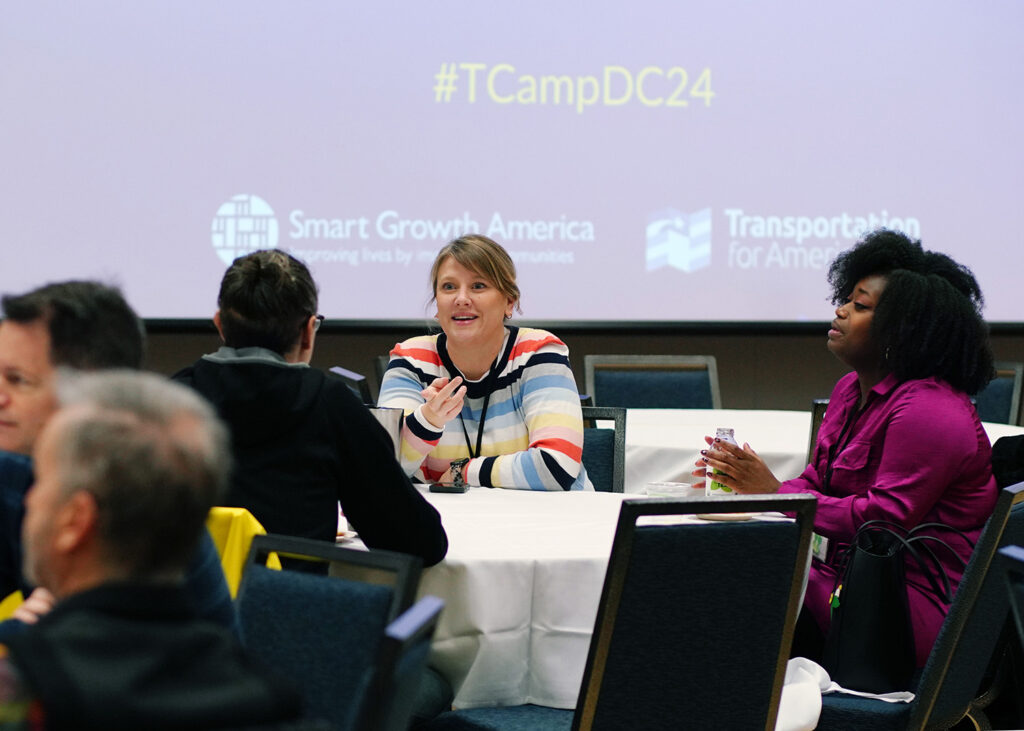
A rainy first Saturday of the year did not deter the enthusiasm and participation of hundreds of folks who came from near and far for the much anticipated annual TransportationCamp DC. The multi-purpose room of Van Metre hall slowly filled as people grabbed their morning coffee and bagels and said hello to friendly faces, old and new, while mulling over an icebreaker that prompted people to consider how to implement or improve upon different modes of transportation at the local and national level.
This annual “unconference” is a unique approach to talking about transportation. Rather than create a pre-planned agenda, the program’s sessions are decided by the participants, who range in age and expertise. They pitch topics of discussion to the group at large who then carefully consider and vote on the propositions that interest them most, resulting in the day’s agenda. Gradually, sheets of paper began to line the front of the room where people frantically wrote and displayed their session ideas in the hopes of winning over the crowd with their proposed topics. An array of ideas – green mobility, data-driven policy, transit equity, and climate grief and burnout to name a few – were listed, enticing people to intently ponder which subjects resonated most with them before casting their votes.
Once the submission window closed, attendees transitioned to the main auditorium to hear from Veronica O. Davis, the Director of Transportation for the City of Houston. With copies of her new book, “Inclusive Transportation” in hand, people took their seats in anticipation of her opening remarks. Davis, a lively, energetic speaker who came prepared to engage the audience, began by surveying the room. When prompting people to proudly raise their hands if they grew up walking and biking in their communities, dozens of arms shot up, but the numbers dwindled as she built in the context of today, wondering at last, who among the crowd would allow their children to walk or bike in our current environment.
“We have built a world in which a child cannot move freely,” she acknowledged. It was a captivating segue into the rest of her presentation, where she read aloud the preface of her book and invited everyone to let their guard down and enter the day’s conversations intentionally, respectfully, and openly.
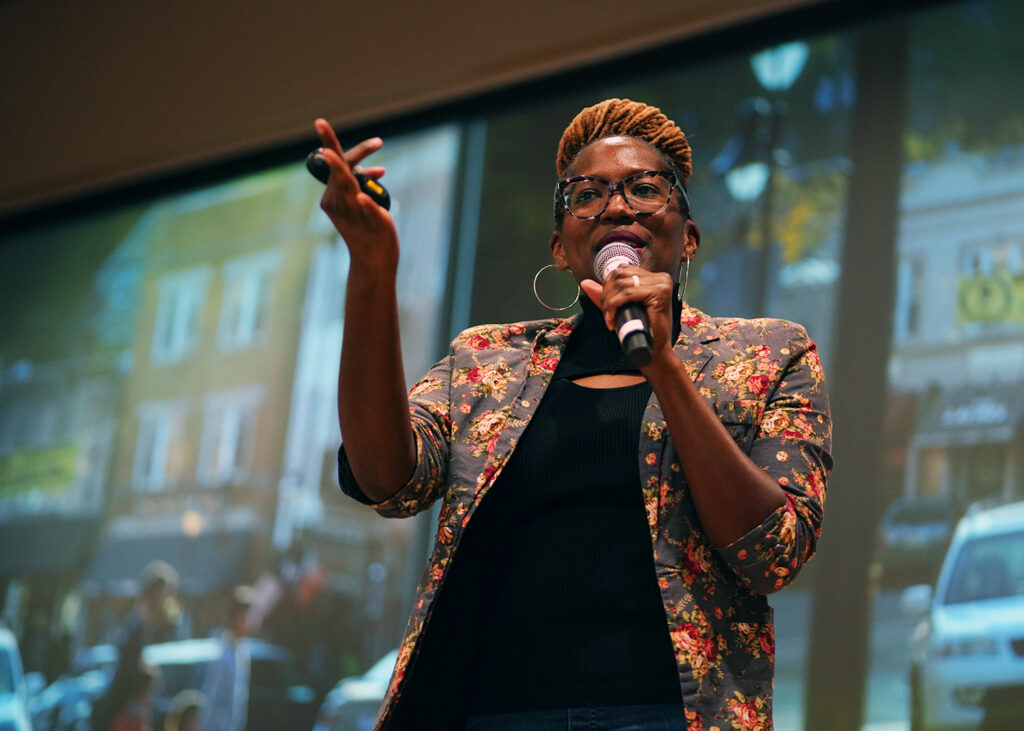
Inspired and ready for the day to unfold, it was nothing but hustle and bustle to peer over the heads and shoulders of the crowd that had formed to view the official schedule of the day. Five periods and their corresponding rooms and topics were assigned…TCamp was officially in session. Breakout rooms became an intimate space to discuss pedestrian safety, transit-oriented development, curbing transportation emissions, and more. The structure for each session ranged from formal presentations to open forums to robust group discussions.
I attended one session all about “researching your passion” and found myself sharing my interests in data storytelling. To my surprise, two other people in the small group expressed similar interests. The like-mindedness and curiosity of campers at TransportationCamp made it easy to feel included and I learned that it didn’t matter what my background or experience was. If you are willing to learn, there are endless opportunities to inherit new nuggets of knowledge.
Speaking of knowledge, the plenary speech given by Councilmember John J. Bauters was a presentation chock-full of additional, valuable insights. With an impressive background and intense understanding of the field, Bauters took a moment to showcase a variety of examples and success stories of how he’s helped his community in Emeryville, CA become a force to be reckoned with when it comes to inclusive transportation and infrastructure. Bauters’ speech helped me understand the importance of engaging with and electing decision-makers that align with my transportation goals, a lesson I was able to take into the conversations that followed for the remainder of the day.
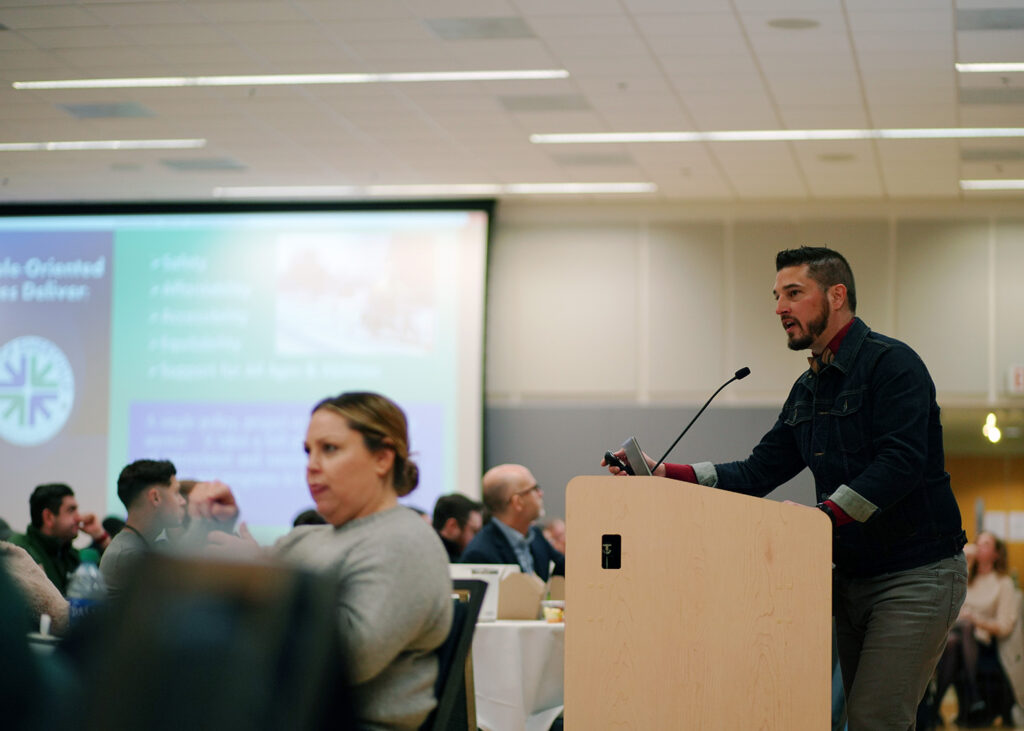
After a jam-packed day, Camp came to an end, though the conversations were far from over. Some participants lingered beyond closing while others made their way to the reception at Penn Social in D.C. It was a space for vibrant and engaging interactions where people proceeded to mingle and enjoy a relaxed atmosphere complete with snacks, drinks, music, and arcade games.
It’s evident that TransportationCamp sets the stage for advocates, planners, and transportation nerds alike to enter the year with new or evolved alliances with peers and an invigorated sense of purpose and determination. Devoting time to learn and grow together is a powerful tool that generates hope for the future, a future where everyone can travel safely and conveniently, no matter where their trip begins and ends.
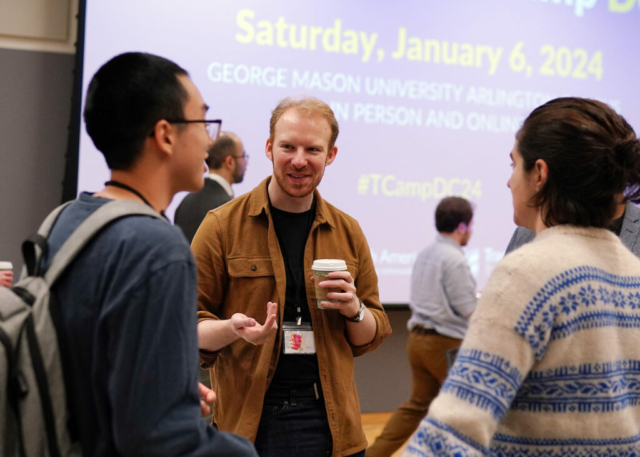
The post Perspectives and takeaways from my first time at TCamp appeared first on Transportation For America.




